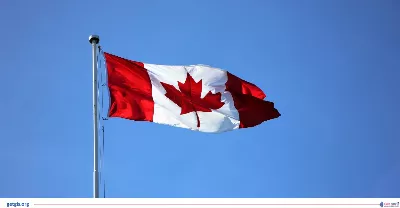Master Class Move: Canada Extends Work Permit for Master's Students to 3 Years
Updated On
-
Copy link
-
-
Explore Canada's new move to extend work permits for master's students! Discover how you can pursue your career goals with up to 3 years of work experience.
Canada extends post-graduation work permit to 3 years, regardless of program length. This policy shift opens doors for skilled talent to contribute and build careers in Canada.
Breaking News for international master's students! Immigration, Refugees and Citizenship Canada (IRCC) just announced a game-changing policy that extends your post-graduation work permit (PGWP) to a whopping 3 years!
Before you pack your bags for a Canadian adventure, let's break it down:
- Previously: Your PGWP length matched your study program (max 3 years).
- Now: Master's grads in programs under 2 years get a 3-year PGWP, regardless of program duration!
What Does This Mean for International Students?
For international students pursuing master’s degrees, this policy change opens up new avenues for career development and integration into the Canadian workforce. With a three-year work permit, graduates have ample time to gain valuable work experience, establish professional networks, and explore opportunities for long-term settlement in Canada.
Moreover, this shift underscores Canada’s commitment to attracting and retaining top-tier international talent, enhancing its reputation as a premier destination for higher education and professional growth.
Also, read: IRCC Marks PTE Scores as Eligibility For Canada Immigrants
Eligibility Criteria for Post-Graduation Work Permits (PGWPs)
To qualify for a Post Graduation Work Permit (PGWP), international students must meet certain criteria.
- Program Completion: Completion of studies in an academic, vocational, or professional training program lasting a minimum of eight months at a designated learning institution (DLI).
- Program Type: Enrollment in a program leading to a degree, diploma, or certificate.
- Full-time Student Status: Maintenance of full-time student status during each academic session of the program, with exceptions allowed.
- Documentation: Submission of official transcripts and a letter from the DLI confirming program completion.
- Institution Type: Graduation from a public post-secondary institution, private post-secondary institution (in Quebec), or Canadian private school authorized to award degrees under provincial law. All institutions must be DLIs.
Explore: Canada Unveils Major Reforms in Visa Regulations for International Students
However, starting May 15, 2024, students enrolled in curriculum licensing agreement programs will no longer be eligible for a PGWP. In addition, the special measures for distance learning and PGWP validity have been extended until August 31, 2024
Still confused? No worries! We've got you covered.
Head to the official IRCC website for full details and requirements or consult an immigration expert like ����ÿ�մ��� for personalized guidance.
Don’t miss: IEC Canada Issues 5,000+ Invites in Latest Round of 2024
What’s Next?
In the coming weeks, the IRCC plans to introduce amendments to spousal work permit regulations for international students at the undergraduate level. Moving forward, only spouses of master’s and doctoral students will be eligible for spousal work permits. This change aims to streamline the process and align with the focus on higher education and professional advancement.
This is your chance to launch your Canadian dream! Don't wait, explore your options today!
Your Canadian Dream Starts Here
As Canada continues to adapt its immigration policies to meet evolving needs and priorities, these updates signal a progressive approach toward attracting and retaining global talent. Master’s students, in particular, stand to benefit from enhanced opportunities for career growth and integration into Canadian society.
Whether you're nearing graduation or just starting your master's journey, this news could be your springboard to a thriving Canadian career. But navigating the complexities of immigration can be difficult. That's where ����ÿ�մ��� comes in! We'll help you understand your PGWP options and guide you through the requirements. We handle the paperwork and communication with IRCC, allowing you to focus on your studies and preparations.
Don't let this opportunity pass you by! Contact ����ÿ�մ��� today!
FAQs
1. Do undergraduate or doctoral students qualify for this extended permit?
No, the extended work permit is specifically tailored for master's students and does not apply to undergraduate or doctoral degree holders.
2. Can international master's students apply for this extended work permit?
Yes, international students who have completed their master's degree from a Canadian institution are eligible to apply for the extended work permit, provided they meet all other requirements.
3. Does the extended work permit come with any restrictions?
While the extended work permit offers greater flexibility, students are still required to adhere to Canadian immigration regulations and any conditions specified on their permit.
4. Will this policy change affect the process of obtaining permanent residency in Canada?
Yes, accumulating work experience through the extended permit can enhance a master's student's eligibility for various Canadian immigration programs, including those that prioritize skilled workers and individuals with Canadian work experience.
5. Are there any additional documents or steps required to apply for the extended work permit?
Generally, the application process remains similar to that of the regular post-graduation work permit, but applicants should ensure they meet the specific eligibility criteria for the extended permit.
6. How does this policy align with Canada's goals for attracting international talent?
By offering extended work opportunities to master's students, Canada aims to retain top international talent, bolster its workforce with skilled professionals, and foster innovation and economic growth in various sectors.




